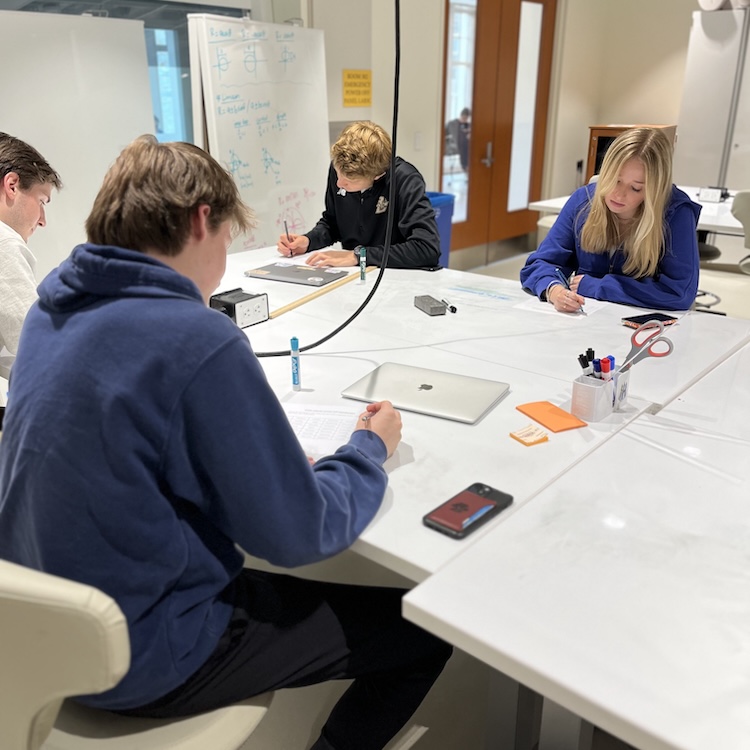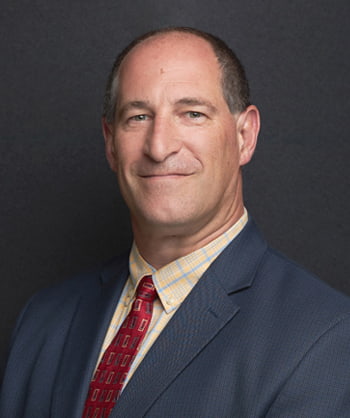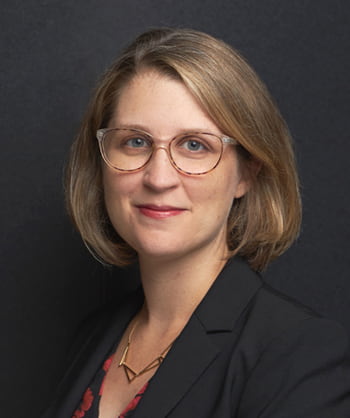Human-Centered Engineering Major
The Human-Centered Engineering (HCE) program provides students with a technical education that is human-centered, design-process driven, and focused on applying engineering knowledge to solve complex global problems.
Courses
The Department of Engineering in the Morrissey College of Arts and Sciences offers a B.S. degree in Human-Centered Engineering.
Going Global
The Department of Engineering supports HCE majors who are interested in studying abroad during the summer or during the academic term.
Careers
The HCE major prepares you for many different career paths. We've compiled a list of resources to assist in finding careers that make use of your engineering skills.
At a Glance
Structure of HCE Major
The Bachelor of Science in Human-Centered Engineering is a cross-disciplinary engineering degree that integrates traditional engineering disciplines with coursework in foundational engineering science and design, within the context of Boston College’s liberal arts education. The program has focus areas in health, energy, and the environment.
Here's what to expect as an HCE major during your four years on campus:
First-year experience
The first-year curriculum is centered around active learning, engineering design, and collaboration. First-year engineers gain an introduction to engineering design through courses like Innovation Through Engineering Design, Making the Modern World and Intro to Human-Centered Engineering. They also take courses in engineering modeling and analysis and engineering computation and programming. In addition, first-year engineers take Physics 1, Calculus 1 and Calculus 2 as well as Core courses.
Sophomore year
Sophomore engineers take the 16-credit Engineering Foundations Studio (EFS) sequence. In the fall, they take Engineering Foundations Studio I and II and in the spring they take Engineering Foundations Studio III, IV, and V. The goal of the EFS sequence is to reinforce concepts from the first year and extend technical knowledge in a range of engineering topics. Students learn about: statics and mechanics, circuits and electrical engineering, thermo, fluids and mass transport, probability and systems engineering, and how to develop an independent engineering modeling project. Sophomores also take General Chemistry 1 with Lab in the fall.
Perspectives
Many sophomore engineers elect to take the two-semester Perspectives on Western Culture sequence, which fulfills Core requirements in Philosophy and Theology (6 credits each semester).
Junior/Senior years
The engineering curriculum offers more flexibility during the junior and senior years. Students have the opportunity to start defining their areas of interest within engineering with their technical electives.
Advanced engineering courses
All engineers will take advanced engineering courses like Engineering for Society and Introduction to Statistical Data Analysis and Machine Learning. Students also have the opportunity of taking Advanced Math for Engineers.
Technical elective courses
Given the broad scope of engineering, the HCE program provides students with the flexibility to tailor their academic experience by selecting courses that align with their specific interests and career goals. Starting in their junior year, and in close consultation with their academic advisor, students may enroll in technical engineering electives (minimum of 14 credits) focused on key areas such as health, energy, the environment, or other interdisciplinary fields of interest. This approach allows students to explore and develop competencies in areas that resonate with their interests and professional aspirations.
A strength of the HCE curriculum is the diversity of faculty expertise, representing a wide range of engineering disciplines. This diversity enables the department to offer technical electives in the focus areas listed above, and be responsive to evolving student interests and emerging industrial needs in cross-cutting interdisciplinary areas.
Collaborative project courses
Students work on two collaborative project courses: the Junior Collaborative Service Engineering Project course (which can be taken during the semester or over the summer with engineering faculty) and the Senior Impact Project course (which is the capstone engineering design project seniors embark upon during both semesters of their senior year).
Reflection
Each semester, engineering students participate in weekly HCE Reflection courses designed to connect coursework with questions about ethics and student formation. Topics for reflection include:
- The role of engineering knowledge in complex systems
- What it means to do human-centered engineering for the common good
- The moral and ethical dimensions of engineering practice
- Connections between engineering and philosophy and theology
- What it means to engage with communities during engineering project work
- Their own formation as students and individuals
- Potential career paths

Minors, Double Majors, & Pre-Health
HCE students, with careful planning and in conversation with their academic advisors, can add a minor, double major, or pre-health track to their engineering major.
Minors
Depending on a student's interest academic preparation, it is possible to major in engineering and add a minor from either the Morrissey College of Arts and Sciences (MCAS) or the Carroll School of Management (CSOM).
Students should think about not just what minor field they might be interested in but also why they would like to pursue a minor. What will your minor field add to your overall program of study at BC? How will it complement your HCE major?
We advise students who are interested in minoring to talk with their HCE faculty advisors about how their minor will integrate into their HCE major. Most minor programs are 6-7 courses, or at least 15 unique credits.
To declare a minor, reach out to the minor department or program to apply. Students should double-check that their minor shows up on EagleApps.
Learn more about the Global Public Health and the Common Good minor
Double Majors
With careful planning, HCE majors can potentially double major. Students should think about why integrating a second major into their academic plan is compelling and what it will mean for them academically and personally over their four years on campus.
Students interested in double majoring should work closely with their HCE faculty advisor to clarify how to fulfill all requirements for engineering and their second major.
Pre-Health Track
With careful planning, HCE students can fulfill their major requirements as well as requirements for the Pre-Health track.
Students should meet regularly with their HCE advisor as well as the amazing Pre-Health advising team to tailor their academic schedules and work on gaining academic, extracurricular, and clinical relevant to a career in medicine.
More information about course planning from the HCE perspective can be found below. Contact Professor Jenna Tonn for more information.
Learn more about the Pre-Health Track at BC
Pre-Health Track Resources for HCE majors
FAQ
Incoming first-year students must be admitted as HCE majors in the Morrissey College of Arts and Sciences to be part of the undergraduate engineering major. If you are interested in the major, designate HCE in your Common App to Boston College.
Incoming first-year students must be admitted as HCE majors in the Morrissey College of Arts and Sciences to be part of the undergraduate engineering major. BC students can enroll in HCE courses open to non-majors (e.g. ENGR1026: Innovation Through Engineering Design and Enduring Questions and/or Complex Problems courses with Engineering faculty) and reach out to HCE faculty regarding opportunities for research.
Incoming first-year students must be admitted as HCE majors in the Morrissey College of Arts and Sciences to be part of the undergraduate engineering major. Faculty welcome non-majors to enroll in engineering courses offered to all students. First-year students might be interested in taking Complex Problems or Enduring Questions courses on offer, such as ENGR1801/HIST1627 Making the Modern World: Design, Ethics, and Engineering. Students from any class might also think about taking ENGR1026: Innovation Through Engineering Design..
Engineering faculty members collaborate with undergraduate students in their research. Any BC student—HCE majors and students majoring in other academic programs—is welcome to reach out to an engineering faculty member after familiarizing themselves with their research. Some student research positions are paid and others are available for academic credit.
Boston College offers a Bachelor of Science degree in Human-Centered Engineering. The name “Human-Centered Engineering” (HCE) reflects BC’s approach to engineering education which focuses on training engineers to tackle real-world problems through a curriculum that is inclusive, project-based, service-focused, and committed to the social good. Human-Centered Engineering integrates engineering education with BC’s liberal arts Core Curriculum and its Jesuit, Catholic tradition of student formation. Our HCE majors are interested in the impact of engineering decisions on individual users and society, connecting social and cultural contexts to engineering design, and becoming informed, responsible engineers in today’s global society.
One of the most distinctive aspects of the Human-Centered Engineering program is its alignment with the Boston College Core. All HCE majors fulfill the Morrissey College of Arts and Sciences (MCAS) Core Curriculum as well as the MCAS Language Requirement. Each semester HCE majors take Core courses alongside their engineering classes. This is one of the most vital and sustained ways in which HCE students create connections between their technical training and complex issues related to engineering and society.
HCE majors take a mix of engineering courses, math/science co-requisite courses, Core course, and language courses during their four years at Boston College. First-year HCE courses build foundations in engineering design, applications of math and physics to engineering analysis, and engineering computation and programming. Second-year students take a five-course Engineering Foundations Studio sequence that introduces students to common topics across engineering domains. Third-year and fourth-year students take advanced engineering courses, advanced engineering math, and choose up to four focus-area courses related to Health, Energy, and/or the Environment. While all of our coursework involves project-based learning, the third-year Collaborative Service Project course and the fourth-year Capstone Engineering Project course offer intensive, real world, professional, engineering design experience for our majors. In a typical semester, HCE majors will take 2-3 engineering courses and 2-3 non-engineering courses (usually a mix of Core courses, language courses, or minor courses).
The Department of Engineering focused entirely on undergraduate engineering education, which means that there is ample opportunity for HCE majors to conduct engineering research from early on in their career at Boston College. All of the engineering faculty mentor undergraduate students and collaborate with them on research projects. HCE majors interested in research opportunities should familiarize themselves with the expertise of the engineering faculty and reach out directly to inquire about term-time or summer positions.
Community comes first in HCE, and students and faculty constantly collaborate inside and outside the classroom. In the words of the HCE Class of 2025 student Will Sweeney: “All of the faculty are extremely approachable and are absolutely on your side whenever it comes to figuring out classes, help with homework, looking for internships, or even navigating BC in general. The class sizes are small which makes it so easy to make friends within the major and I am always working with different groups of my fellow classmates, constantly fostering great relationships. There is absolutely no sense of cut throat competition within the department and everyone genuinely wants to help eachother grow. Whenever I think of the HCE department I don’t think of it as a major, I think of it as a community.”
Yes! We believe that engineers should be able to integrate their academic interests outside of engineering with the HCE major. HCE majors are minoring, double majoring, studying abroad, and integrating their engineering major with the Pre-Health Track at BC. We recommend that students meet regularly with their HCE advisors to talk about these academic opportunities and to ensure that they can graduate on time fulfilling their HCE requirements, accreditation requirements, and those of their chosen academic programs outside of engineering.
Contact

Glenn Gaudette
Chair, Department of Engineering
glenn.gaudette@bc.edu
617-552-2049
245 Beacon Street, Room 511

Jenna Tonn
Director of Undergraduate Studies
jenna.tonn@bc.edu
617-552-6901
245 Beacon Street, Room 308B
Potential Employers: If you are interested in offering an internship or job to a Boston College Human-Centered Engineering student, contact the BC Career Center at 617-552-3430.

